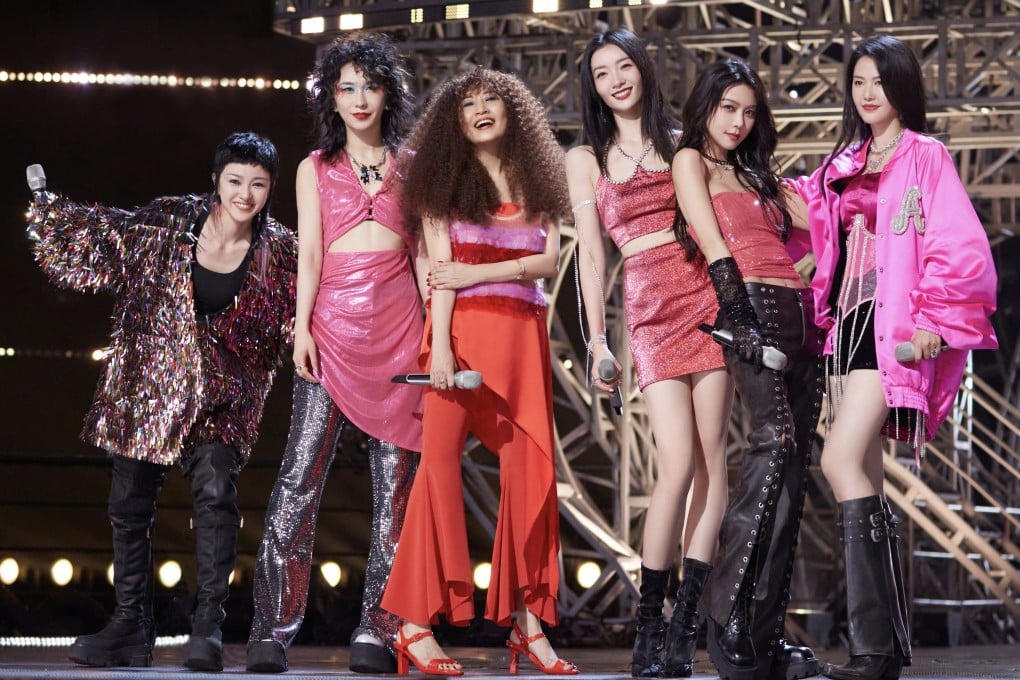What TV hit Sisters Who Make Waves says about women’s equality in China
- Olympic gold medallist Xu Mengtao and other prominent women over 30 celebrated in pop idol-style reality show
- But academics question if it is empowering or a reinforcement of gender expectations in Chinese society

Xu, 32, took home one of two “breakthrough role model” awards – alongside 54-year-old disco icon Zhang Qiang – in the latest season of the show, which centres on female celebrities over the age of 30.
“We have firm ambitions and the courage to overcome difficulties. We can live carefree, we can live confidently, because we love ourselves,” Xu said, as she accepted the award.
Xu dominated national headlines in February, when she won gold at the Winter Olympics in Beijing. Three months later, she was showing off her singing and dancing skills for millions of viewers each fortnight in the show, a mirror of the popular pop idol format.
The twist of Sisters is that the contenders chosen to debut in a singing group, after months of televised competitions and eliminations, are already well-known public figures, with varied and thriving careers.
The show’s motto is to “bravely be yourself, regardless of age” and its third season – tagged “30 and happy” – featured its most diverse cast yet, with contestants ranging in age from 29 to 54, and drawn from the worlds of film, music, opera and sport.
They included K-pop idol Jessica Jung Soo-youn, Cantopop duo Twins, and actress Ning Jing, all with sizable international fanbases as well as the homegrown largely female, middle-class audience.